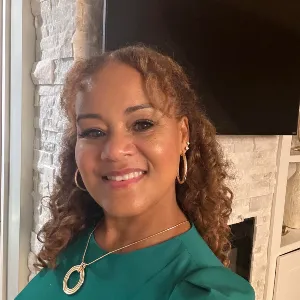
SBA 7(a)
The swiss-army knife of small business funding, bringing versatility when your business needs options.
Need financial fuel for your next move? SBA 7(a) Community Advantage loans cover it all
.webp)
Funding from $25,000 to $350,000
.webp)
Approval in as fast as 3 weeks
.webp)
Competitive interest rates
.webp)
Terms up to 25 years
What can I use an SBA 7(a) loan for?
SBA 7(a) can fund most business expenses for established businesses, new businesses and start ups
Debt refinancing
Improve cash flow by refinancing existing qualified debt at better rates and terms.
Working capital
Keep your operations humming with funding for day-to-day expenses.
Inventory purchases
Stock up on materials or merchandise to drive growth.
New initiatives
Launch value-added products or expand your offerings
Equipment purchases
Invest in new technology or equipment to help you work smarter.
Improvements to your space
Create your dream business location, whether you rent or own.
Business acquisitions
Buy a business that complements your work experience and goals.
SBA 504 is the ultimate team effort
Typical SBA 504 loan structure
SBA 504 loans work a bit different, in a way that we like to think of as a team effort. A commercial bank, RBAC, and you all bring funds to the table to make your project happen. Don't have a banking relationship yet? No worries—we work with great partners and can make an introduction.
You contribute as little as 10% down (start ups and special cases may require a higher down payment)
RBAC provides an SBA 504 loan for 40% of your project costs
Your bank provides 50% to complete the financing
.avif)
Do I qualify for SBA 7(a)?
The answer to whether you qualify for 7(a)? We figure that out on a case-by-case basis—contact us if you're interested. Here are some good-to-knows upfront:
You must be a for-profit small business. Nonprofits are not eligible.
SBA 7(a) loans can be used for almost any business purpose, including working capital, inventory, supplies, furniture, fixtures, or equipment, real estate purchases, and paying existing debts. However, funds cannot be used for personal expenses.
Credit score requirements are generally more flexible than banks, but you must show creditworthiness and the ability to repay your loan.
If you’ve had a past bankruptcy or have poor credit, but have a strong explanation (such as an illness or divorce), you may still be eligible for a loan.
Startups and existing businesses are eligible, but startups will be required to show a business plan and financial projections and evidence of industry experience.
Personal guarantees are required from all owners of 20% or more of the business.
Collateral is required, if it is available.
Sign up for monthly emails
Get SBA lending tips, business advice, and fun updates from your friends at RBAC







